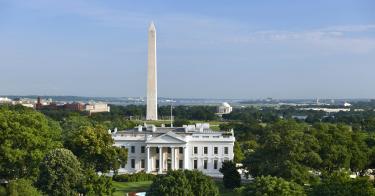The Supreme Court has agreed to hear the government’s appeal of the so-called travel ban shortly in October — welcome news for those who value the rule of law and separation of powers.
Congress explicitly granted the president authority to “suspend the entry of all aliens or any class of aliens” “for such period as he shall deem necessary, when he “finds that the entry of any aliens or of any class of aliens … would be detrimental to the interests of the United States.”
On March 6, President Trump issued a revised executive order:
- Directing the secretary of the Department of Homeland Security to review whether foreign governments provide adequate information about nationals applying for visas to enter the USA.
- Entering a 90-day suspension (subject to case-by-case waivers) on the entry of nationals from six countries — Sudan, Syria, Iran, Libya, Somalia and Yemen —that had been designated as state sponsors of terrorism or “countries of concern” by Congress and Obama administration officials.
- Suspending travel by refugees under the U.S. Refugee Admissions Program for 120 days.
- Capping the number of refugees admitted this year at 50,000.
Courts traditionally accord great deference to the executive branch when it comes to national security issues. After all, the president receives daily classified intelligence briefings about the many threats we face; federal judges do not. Presidents are given primary responsibility for protecting our homeland, not federal court judges.
Moreover, in 1972, in Kleindienst v. Mandel, the Supreme Court held that when the executive branch makes a decision to exclude an alien “on the basis of a facially legitimate and bona fide reason,” courts may “neither look behind the exercise of that discretion, nor test it by balancing its justification against the constitutional interests of citizens the visa denial might implicate.” The court reiterated this conclusion just two years ago in Kerry v. Din.
Presidential authority to protect our homeland should not be second-guessed by courts based on some hidden intent divined from tweets and statements made by surrogates in the heat of a presidential campaign. The Supreme Court should uphold the president’s authority to implement his revised executive order. A contrary result would needlessly imperil our national security and do great damage to the structure of our Constitution.
This piece originally appeared in USA Today



